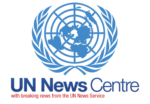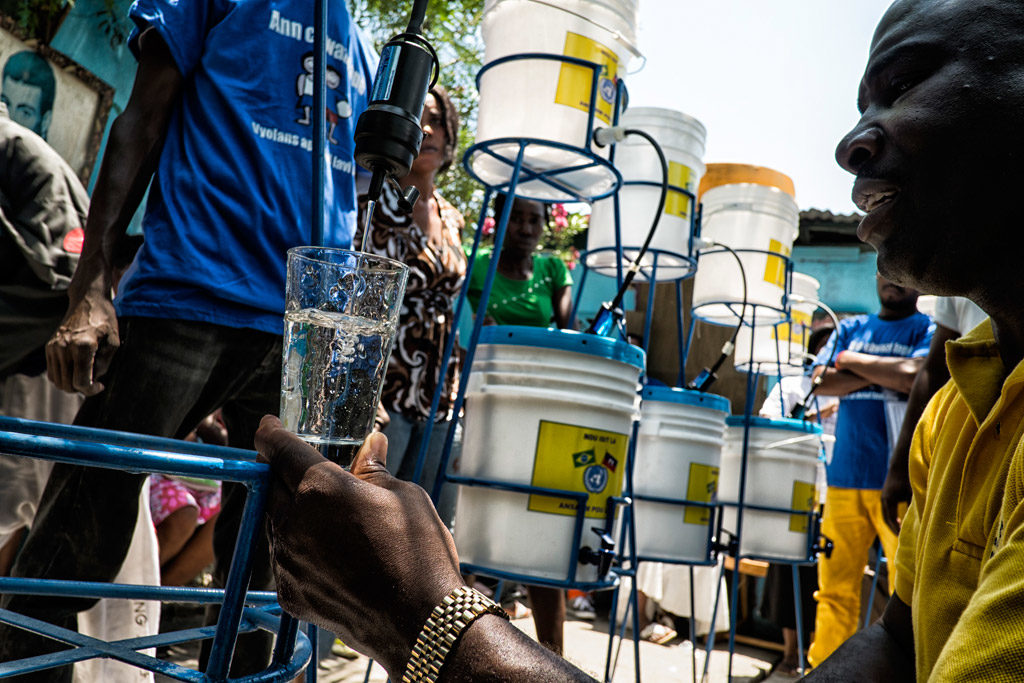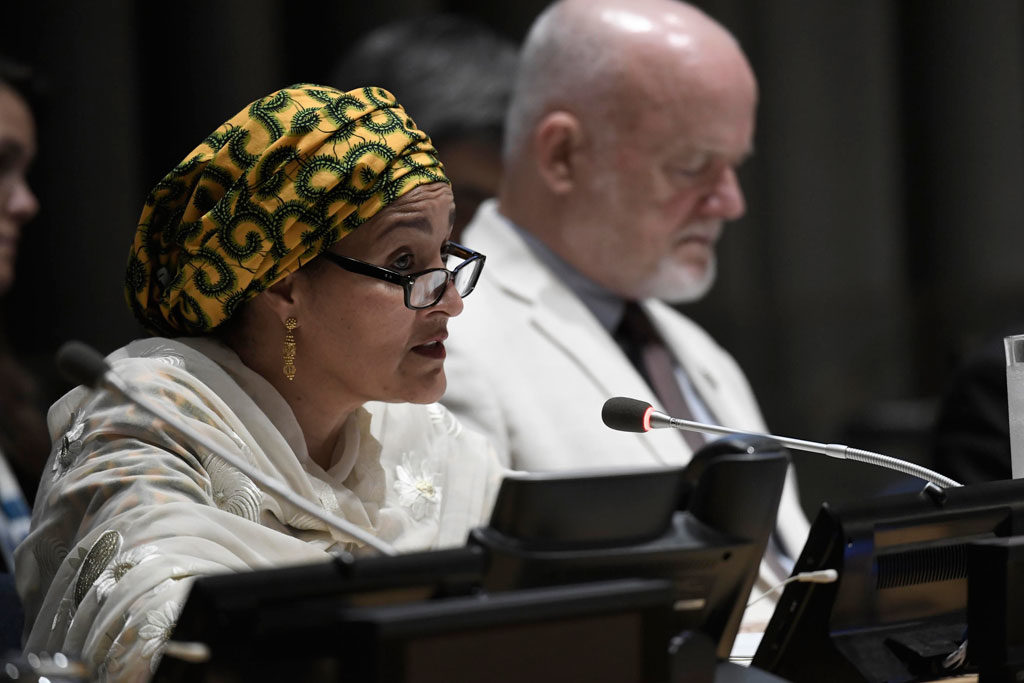Political Will, Financial Support Needed to Bolster New Approach to Cholera in Haiti – UN Deputy Chief
HEALTH, 19 Jun 2017
UN News Centre – TRANSCEND Media Service
 14 Jun 2017 – The United Nations deputy chief today called on Member States to fund the Organization’s new strategy to counter cholera in Haiti, stressing that the initiative is facing a critical shortage of resources.
14 Jun 2017 – The United Nations deputy chief today called on Member States to fund the Organization’s new strategy to counter cholera in Haiti, stressing that the initiative is facing a critical shortage of resources.
“Without additional resources, the intensified cholera response and control efforts cannot be sustained through 2017 and 2018,” said Deputy Secretary-General Amina Mohammed during an informal briefing to the General Assembly on the Organization’s latest report on the strategy. “Without your political will and financial support, we have only good intentions and words.”
Last December, then-Secretary-General Ban Ki-moon put forward a New Approach to Cholera in Haiti to demonstrate the Organization’s commitment to the elimination of the disease. He also apologized to the Haitian people on behalf of the United Nations stating that the Organization simply had not done enough with regard to the cholera outbreak and its spread in Haiti and that it was profoundly sorry for its role.

The UN Stabilization Mission in Haiti (MINUSTAH) has partnered with Haitian Agencies to combat cholera by providing clean water. UN Photo/Logan Abassi
The new approach has two tracks:
- Track 1 involves intensifying the Organization’s efforts in order to reduce and ultimately end the transmission of cholera, improve access to care and treatment and address the longer-term issues of water, sanitation and health systems in Haiti.
- Track 2 is a package that will provide material assistance and support to those Haitians most directly affected by cholera.
“Secretary-General António Guterres is strongly committed to taking forward the New Approach,” she said.
In the weeks following Hurricane Matthew last October, the number of suspected cholera cases increased. However, the number of suspected cases has since declined significantly. As of 27 May of this year, the Haiti Ministry of Health had reported 6,762 suspected cases, compared to 16,822 at the same time last year, she said.
The vaccination campaign being carried out by the Pan American Health Organization and World Health Organization (PAHO/WHO) is well advanced, and is expected to reach 85 per cent of the 700,000 target by the end of this month. The next campaign, scheduled for the last quarter of 2017, aims to vaccinate 2.6 million people in the country’s most vulnerable areas.
As of 20 April, voluntary contributions to the UN Cholera Response Multi-Partner Trust Fund totalled about $2.7 million from seven Member States, namely Chile, France, India, Liechtenstein, the Republic of Korea, Sri Lanka and the United Kingdom, against the envisaged expenditure of $400 million over two years. Outside of the Trust Fund, Canada and Japan, committed nearly $7 million. The Fund has also received approximately $17,000 from UN staff members and private donors.
However, three projects, which together cost $2.5 million, have nearly depleted the Trust Fund, which now has just $183,000. No new contributions have been received.

UN Deputy Secretary-General Amina J. Mohammed (left) briefs member states on the United Nations’ New Approach to Cholera in Haiti. General Assembly President Peter Thomson is seated right. UN Photo/Evan Schneider
The Secretary-General proposes to address the need for resources in several ways, including the soon-be-announced appointment of a high-level envoy to develop a comprehensive fundraising strategy to seek additional voluntary contributions from Member States and other sources.
The Secretary-General and she will continue to use their own interactions with world leaders to urge them to provide further voluntary financial and other appropriate support.
The Secretary-General has asked Member States to consider voluntarily waiving the return of the 2015-2016 unencumbered balances and credits from miscellaneous income and adjustments from the UN Stabilization Mission in Haiti, a peacekeeping mission known as MINUSTAH, and instead direct them to the Trust Fund.
Those balances total $40.5 million, she said.
In his remarks, General Assembly President Peter Thomson said “much remains to be done to eliminate cholera in Haiti, and help move the country from fragility to sustainable development and economic growth.”
“If we are to live together as good neighbours and employ our international machinery for the promotion of the economic and social advancement of all peoples, here is a prime opportunity for good action,” he said.
DISCLAIMER: The statements, views and opinions expressed in pieces republished here are solely those of the authors and do not necessarily represent those of TMS. In accordance with title 17 U.S.C. section 107, this material is distributed without profit to those who have expressed a prior interest in receiving the included information for research and educational purposes. TMS has no affiliation whatsoever with the originator of this article nor is TMS endorsed or sponsored by the originator. “GO TO ORIGINAL” links are provided as a convenience to our readers and allow for verification of authenticity. However, as originating pages are often updated by their originating host sites, the versions posted may not match the versions our readers view when clicking the “GO TO ORIGINAL” links. This site contains copyrighted material the use of which has not always been specifically authorized by the copyright owner. We are making such material available in our efforts to advance understanding of environmental, political, human rights, economic, democracy, scientific, and social justice issues, etc. We believe this constitutes a ‘fair use’ of any such copyrighted material as provided for in section 107 of the US Copyright Law. In accordance with Title 17 U.S.C. Section 107, the material on this site is distributed without profit to those who have expressed a prior interest in receiving the included information for research and educational purposes. For more information go to: http://www.law.cornell.edu/uscode/17/107.shtml. If you wish to use copyrighted material from this site for purposes of your own that go beyond ‘fair use’, you must obtain permission from the copyright owner.